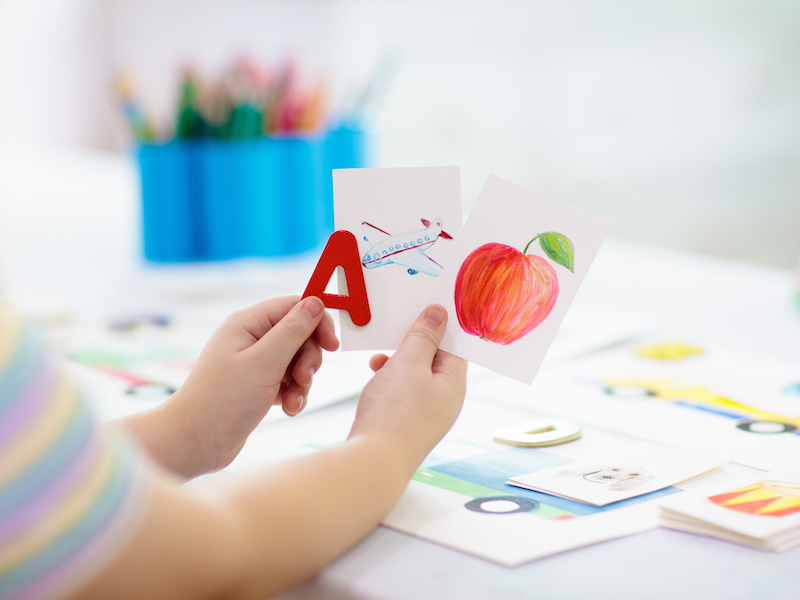Books and Brains Literacy Services is a reading clinic in Hong Kong that helps children become great readers through a range of reading strategies and skills. As founder and literacy specialist Beverly Sace points out, though, reading well starts with having a handle on how to spell.
Why do some children – even some who are good readers – struggle with spelling?
It’s generally accepted that the more exposed you are to words, then logically one’s spelling skills should follow. Recent discoveries, however, have shown that the brain has separate reading and spelling areas. In fact, it is the other way around – spelling helps with reading skills! Children learn to read by spelling by breaking the code of English orthography (or spelling system).
It has been very amusing for me to see that schools and centres that don’t teach spelling alongside reading strategies actually have weaker readers. Good spelling isn’t picked up from books when reading. It must be explicitly taught and learned.
What kinds of strategies do you use to teach kids to spell, and from what age?
The strategies we use to teach spelling reflect spelling development. A distinction also needs to be made to differentiate between beginning spellers and already good spellers. Let me explain. For beginning spellers, typically before the age of six, they need to learn how to represent words with letters. Phonics is key to this, even though many teachers are still ignoring the importance of explicitly teaching spelling skills. For me as a literacy practitioner, the basis of spelling is the ability to recognise sounds and match them with their letters or graphemes – for example, matching the sound /shhh/ to the letters s and h together.
The years when children are in Reception and Year 1 (ages four to six) are very important because this is when we lay the foundation for literacy. The main strategy is the automatic encoding of letters from sounds rather than letter names.
When children have a good foundation in learning to read and spell, and so are therefore “good” spellers, word-specific knowledge is then learned. Rules like consonant doubling and e-dropping to add -ing are to be mastered. Morphology, the study of words and their parts (base words, prefixes and suffixes), then becomes important in fine-tuning spelling knowledge.
This word-specific knowledge also supports literacy fluency, reading skills, writing and even speaking. It’s important that correct spellings are learned – otherwise one could be spelling a word the exact same wrong way for years! Strategies for learning how to spell well include word sorts (games where children organise words in categories) and analogies to known spellings (“we spell ‘chalk’ like ‘talk’”). Additionally, learning rules (“i before e, except after c”) and mnemonic devices (“big elephants can always understand small elephants”). Plus proofreading one’s own work, studying one’s mistakes and using a spelling voice (“how do you spell wed-nes-day?”).
Is English a difficult language as far as spelling goes?
The English spelling system, as I’ve always said, is opaque. Unlike other languages where one letter may represent only one sound, In English, the sound /ai/, for example, can be represented by the following spellings: ay, a_e, ae, a, eigh, ei, aigh, é. English includes a plethora of loan words, therefore foreign spellings, lending their own idiosyncrasies, confuse spellers even further.
English also has an enormous vocabulary, and has arbitrary spelling patterns as seen in the following words: rainbow, post office and thirty-one. Why aren’t these rain-bow, postoffice or thirty one? Because the English spelling system is very complex, parents and teachers should not take for granted that children need two years to learn the English code and use it in a skilled manner.
Are there some signs I should look out for that indicate a problem with spelling at a particular age?
Spelling difficulties are essentially language-based. This means that before these difficulties consistently materialise there may be some early indications. These include confusing the letters b and d consistently, especially past the age of seven. When reading, mixing up the sequence of letters in words, for example writing “wnet” for “went.” Also, trouble remembering the sounds that letters represent. Have a conversation with your child’s teacher in Year 1 to see if there are areas of concern regarding reading strategies.
How can I help with my child’s spelling at home?
I always say that literacy development and reading skills, which includes spelling development, begins in the womb through oral language. When infants can hear sounds and then later on as toddlers understand that these sounds can be represented in print, the seed of the alphabetical principle is sown. Develop reading strategies through reading picture books aloud, point to words as you read them. Also point to special spellings whenever you come across them. Moreover, help children get into the habit of studying the spelling of words. Have fun reading silly words and rhymes, and clap out syllables!
In my practice, I find that when children are spelling words by writing the letters directly from sounds, rather than thinking of letter names, they spell faster. Of course, we can use letter names to differentiate one spelling from another. But children should always be able to recognise the sounds within words in order to use this knowledge to spell. Next time you have to spell something, try to separate the sounds in words – let’s buy some k-e-tch-u-p!
Fluent handwriting – and, later on, keyboarding – also contributes to writing and therefore spelling. It frees up children to think of the spelling and writing processes rather than physically forming or finding letters. Lastly, there are many meaningful activities we can do to practise spelling: writing out the supermarket list, writing reminders, taking notes and writing thank-you and birthday cards are some of them.
Is memorising word lists helpful? What about using apps?
Word lists are very helpful when they have a target sound or spelling, and they aid in adding correct spellings to the “dictionary” in our brain. Apps can also be helpful and effective in teaching spelling. When choosing an app, parents should look for systematic instruction, which includes modelled examples and positive feedback.
Suite 1204, Banyan Workspaces, Eastern Harbour Centre,
28 Hoi Chak Road, Quarry Bay
WhatsApp 9817 5167 | bev@booksandbrains.org | booksandbrains.org
This article first appeared in the Summer 2023 issue of Expat Living magazine. Subscribe now so you never miss an issue.








